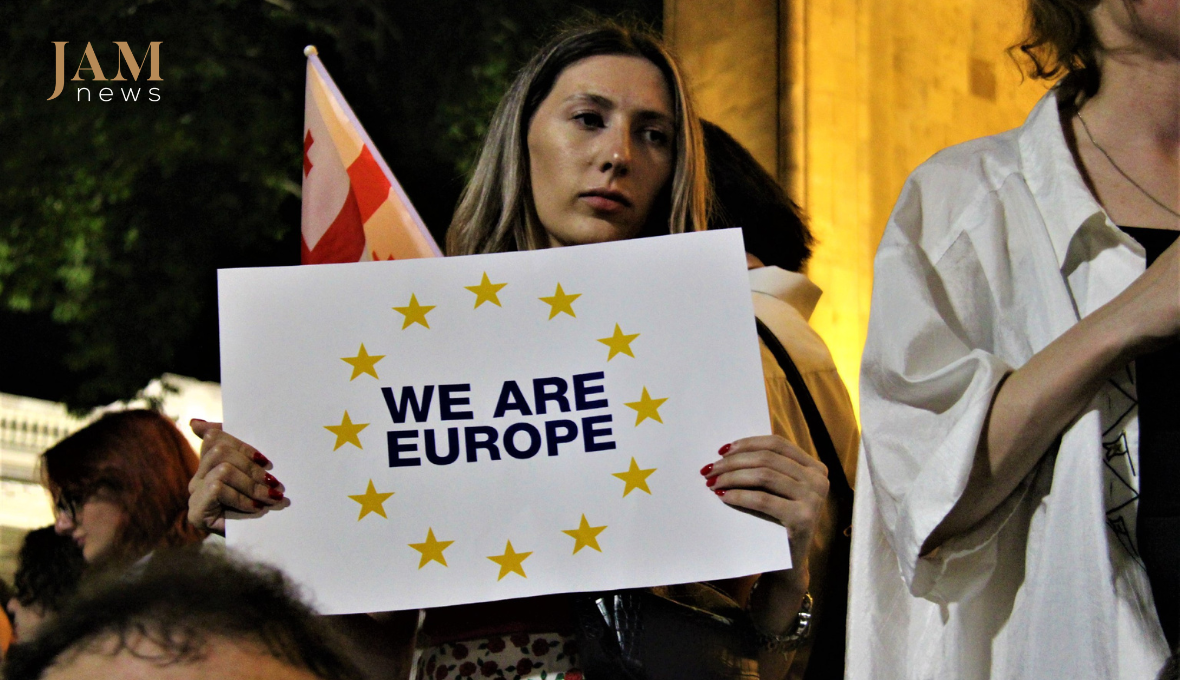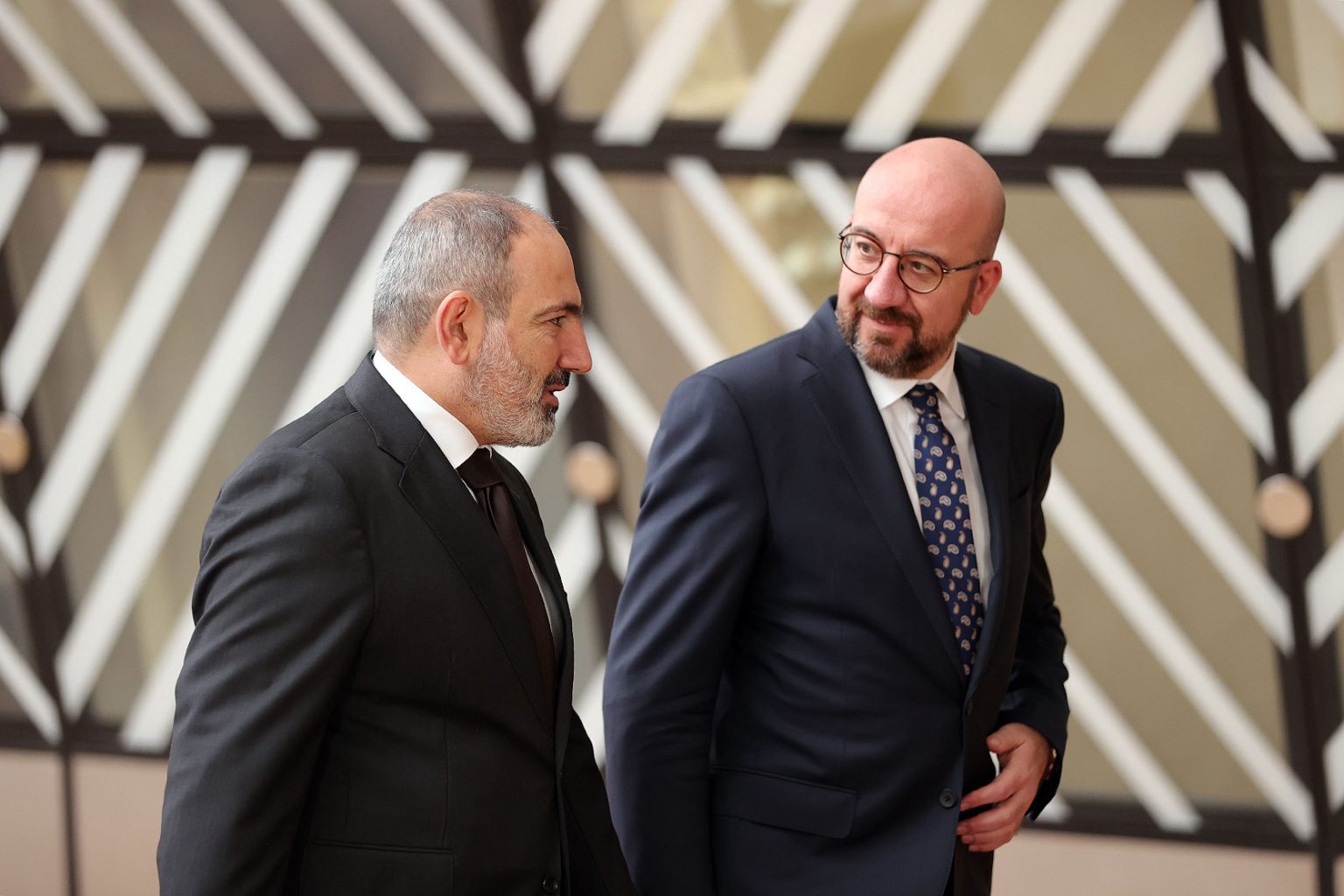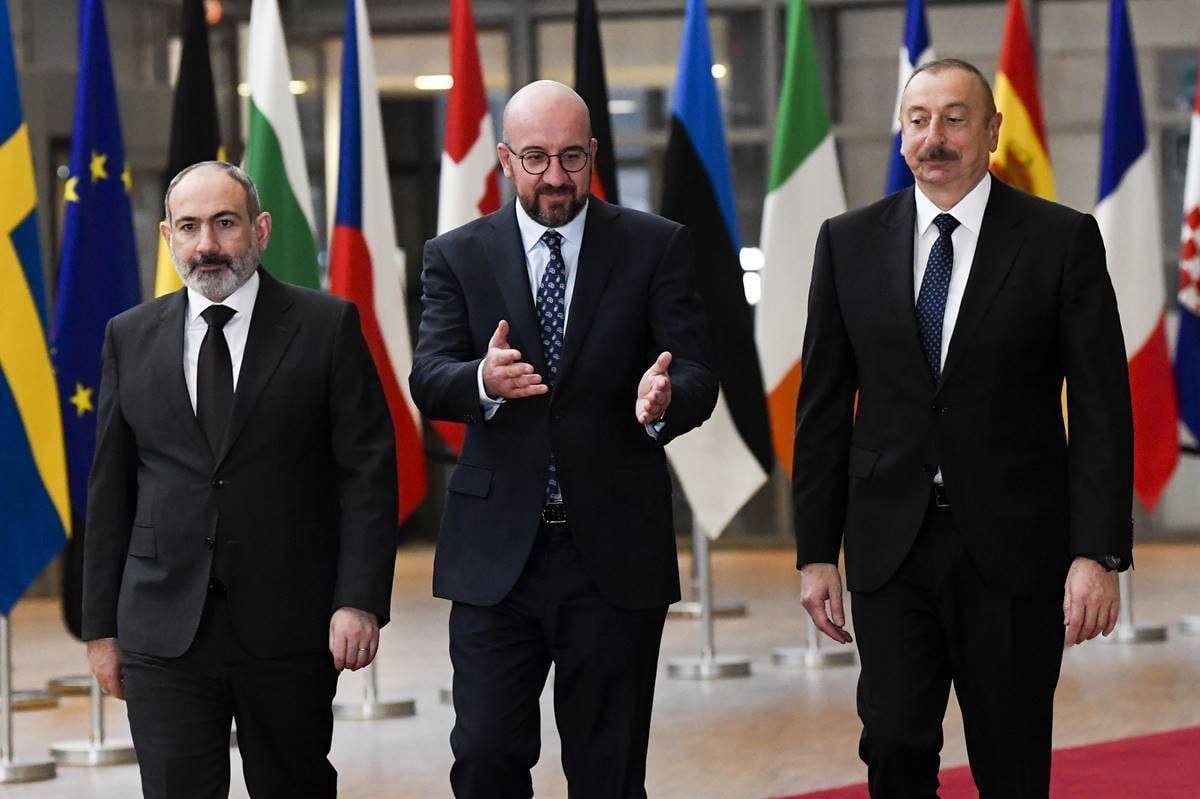Op-ed: how Armenian reforms correspond to EU candidate status
Do Armenian reforms meet EU requirements?
Armenia is not applying for membership in the European Union, however, according to a number of indices, it does not lag behind the countries that have received candidate status. This is what some local experts think, however, others believe that the country is still lagging behind in some respects, some of the reforms have been “ruined”, often deliberately. At the same time, most analysts agree that the deepening dependence on Russia, in which Armenia found itself after the defeat in the Karabakh war in 2020, will not bring it closer to Europe.
On June 23, EU leaders granted Ukraine and Moldova candidate status to join the bloc. Georgia will get this opportunity after some reforms are implemented.
In the light of these events, Armenian experts are discussing whether the country meets the criteria for joining the European Union.
- “Peace, strengthening army or poverty” – what worries Armenians?
- Prison system in Armenia: why are the courts reluctant to approve early release of some inmates?
- EU Special Representative on Karabakh negotiations: “EU is willing to help and move talks forward”
Boris Navasardyan, Head of the Yerevan Press Club
The progress of the logistics surprises the Europeans
“These days in Brussels, the issue of granting Ukraine, Moldova and Georgia the status of an EU candidate is being discussed. During one of the expert discussions with my participation, many were interested in how it turns out that Armenia, which does not seek the EU memberhsip, fixes almost the same indexes in reforms as Moldova, Ukraine or Georgia.
People are used to thinking that post-Soviet countries do something good only if they have some expectations from Western structures. In Armenia, too, the most serious and rapid changes took place, thanks to the aspiration to become a member of the Council of Europe (1997-2000).
When in 2013 Armenia staggered on its way to signing the Association Agreement with the EU, the EU hastened to divide the Eastern Partnership countries into two categories: leaders – today’s candidates for the EU (Ukraine, Moldova, and Georgia) and rear workers (Armenia, Belarus, Azerbaijan). However, further developments showed that Armenia, having a significantly lower level of relations with the EU, continued to maintain the same ratings as the conditional leaders.
This surprised the participants in the discussion in Brussels – European officials, experts, and journalists. I tried to explain, as best I could within the permitted format, the reasons why Armenia did not lag behind, and also warned about the risks hindering progress.
Regardless of how different circles of our fellow citizens relate to Europe, every sane person, I think, understands that the high assessment of Armenia as a state and partner by the EU can only bring benefits.
I myself have always attached more importance not to the formal status of relations, but to substantive rapprochement, an effective combination of European standards and national programs, so that one day EU members by consensus want to see Armenia in their ranks, and we calmly consider whether to accept this invitation.
Recommendations from the EU to Georgia proceed from the interests of this country. Armenia should study all these 12 preconditions for Georgia. Given their direction and the coincidence of unfavorable trends observed in our country, despite today’s relatively high ratings, I propose to study the documentation of the European Commission regarding our neighbors from the point of view of prospects for Armenia”.
Ara Ghazaryan, international lawyer
Criminalization of grave insults spoiled the country’s image
“The annual Eastern Partnership Index shows that in many respects, for example, in the judicial and legal sphere, in the field of freedom of speech or control of parliamentarism, etc. Armenia has better indicators. So much so that regional curators constantly question these indicators, and I have to provide evidence every time.
There has been no progress on discrimination – neither in terms of legislative changes, noe changes in practice.
Serious damage has been done to our image by the recent adoption of a law criminalizing grave insults. Thankfully it was canceled. In a number of countries, of course, there is such a law, but it is applied in rare cases. And here, in such a small country, hundreds of criminal cases have been filed. But even if this law would never be applied, its mere existence already has a deterrent and limits freedom of speech.
There is also no effective system for filtering hate rhetoric on the Internet, no system of regulation. The European Union has such a system, and it proposes it to us.
It would be wrong to say that any country meets all of the EU’s standards. Only the progress of the reforms is assessed”.
Andrias Ghukasyan, political scientist
Armenia lags behind the leading countries
“In order to become a candidate or a member of the EU, Armenia needs serious reforms in many areas and, above all, in the field of justice. At this stage, Armenia does not meet the criteria for joining the European Union. This is a very complex institutional procedure. Armenia is far from this and has no prerequisites for membership yet.
The level of maturity of the political system in Armenia is also at an extremely low level. In addition, the country must be independent in terms of military security.
Almost all spheres of life, ranging from trade, transport, energy, civil security, media to IT technologies, need reforms. We are in a state cut off from European standards, and the gap between our current position and what we have, at least in Georgia, Moldova or Ukraine, is colossal”.
The authorities ruined the reforms
“Most of the reforms for which same Europe gives money to Armenia have been ruined in recent years. I think, slowing down European integration was a conscious political decision.
By the end of last year and the beginning of this year, Armenia was supposed to create a dozen commissions to carry out reforms in various areas, but none of them was created. The working structures that were supposed to work on legislation have not been formed either.
And this despite the fact that Armenia has a Comprehensive and Enhanced Partnership Agreement with the EU, which came into force in March last year. It spelled out the timing of the reforms in accordance with common European standards. These terms are not unlimited. We are talking about 5-7 years. But a year has passed and nothing has been done. Not a single law has been adopted, not a single reform has been implemented that would bring us closer to these goals and objectives. There are no sanctions for not implementing reforms on time. But carrying out reforms is in the interests of Armenia”.
- Military spending of Armenia and Azerbaijan – in numbers
- One year since Karabakh ceasefire agreement. Expert commentary from Armenia
Russia’s interests come first
“The Armenian government puts the interests of Russia above the interests of its own country. Therefore, Armenia is deprived of many opportunities for development, including economic and military-political opportunities, which play a leading role for us.
As a result of the relations that have developed over the years between Armenia and the Russian Federation, where Yerevan believes that one can neglect one’s own interests, the main thing is not to violate the interests of Russia. And Armenia today is not free to choose partners.
To get out of the situation, you need to become independent from Russia, and there must be a public demand for this. If we recall the events in Ukraine, then it was the society there that opposed the freezing of the European integration process, the society demanded the development of this process.
The Armenian society, of course, also wants to go to Europe, but at the same time, it is afraid. Armenia is well aware that behind the words about Armenian-Russian friendship and cooperation are the relations imposed on Armenia. Everything is done in the interests of the Russian Federation. Otherwise, Russia can punish Armenia – economically, politically, and also in the Nagorno-Karabakh issue”.






















